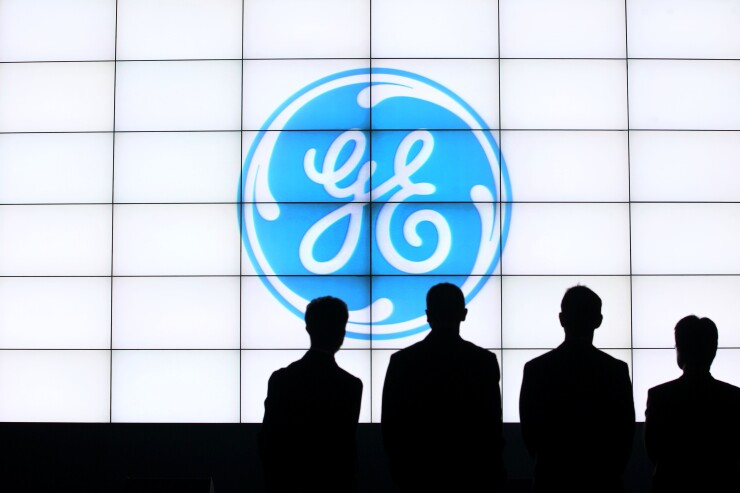(Bloomberg) -- "Stay lean to go fast." "Insights." "Consider vs. Continue." These are some of the key phrases in General Electric's new employee review system, and it sounds like just so many words. But GE is putting its money where its mouth is, too.
Number of white-collar GE employees: 185,000
The 124-year-old company founded by Thomas Edison may go as far as to abolish annual raises in its efforts to motivate employees in different ways by revamping the way it evaluates them. It's the cultural counterpart to the serious physical reinvention that's taking place at the $279 billion industrial giant. In the past year, GE has jettisoned the bulk of its finance businesses, sold off its refrigerator and dishwasher division and ramped up its tech aspirations, with CEO Jeff Immelt vowing to put the company in the ranks of software giants like Oracle and SAP by 2020.
If you want to be more of a tech company, you have to act more like one, including how you cultivate and compensate employees. In Silicon Valley, traditional annual performance reviews are on their way out and continuous feedback -- sorry, insights -- are in. At GE, the idea is to give managers more flexibility to reward good work, whether through more frequent raises or other perks like extra days off. There's even an eval app! Fancy.
How exactly this will all work is still a bit of mystery because GE hasn't officially put the new system into practice. But we can envision at least some consequences.

Scheduling annual raise conversations can create the expectation (and routine award) of a regular bump. Over a quarter of 120 companies surveyed by Willis Towers Watson said they give performance-based bonuses to employees who fail to meet expectations. With less structure, overachievers could end up getting bigger boosts because they're not fighting over a set pot of money with less-deserving employees. Underachievers would suffer, but that could be part of the idea.
Will this make employees more productive and successful? Who knows, maybe. It certainly seems like there's at the very least an opportunity to save time by having regular discussions rather than having to dig back through a year's worth of work to get prepared for an annual sit-down. And if employees know they can get a more immediate reward for coming up with a good idea, that might help to foster more innovative thinking.
But getting rid of a formal annual review system also risks creating uncertainty and potentially a less-clear understanding of the link between pay and performance. It's the middle-of-the-pack group -- the employees who probably would have gotten a raise out of an annual review but don't stand out quite enough to be regularly rewarded under the new system -- whose fate is the least clear. And it will be hard to weed out all the office politics of old.The bigger point here, though, is that what GE is proposing really is more than words -- as opposed to what is essentially a vocabulary exercise at some companies. Morgan Stanley is replacing number rankings with adjectives (notably, it isn't talking about doing away with its annual bonus system). Next thing you know UBS might offer 120 minutes of personal time each week instead of two hours.
That said, GE is a corporate bellwether and its management strategies have been copied elsewhere. Maybe even the banks could be rethinking things some day. Goldman Sachs is doing some vocabulary work of its own, but it's also trying to give more regular feedback. Who's next?





